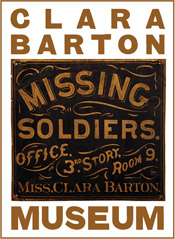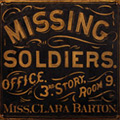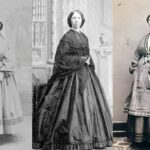Clara Barton: Author and Public Speaker
If you’ve been reading our series of posts about Clara Barton, you know by now that she was a remarkable individual. Yet, we often overlook aspects of her legacy. That is especially true regarding her time as an author and public speaker – something that was uncommon, though not unheard of, for women of the 1800’s.
Several times during her life Clara Barton traveled the country on the lecture circuit to spread the word about her Civil War experiences and to reach out to the public for support in her humanitarian efforts. She spent hours writing out lecture notes, hoping to overcome her fear of public speaking. Barton spoke at lecture halls large and small, focusing her talks on her Civil War activities, the International Red Cross, first aid training, and other humanitarian issues.
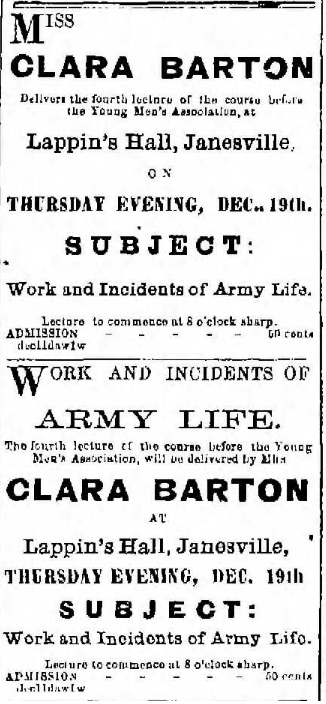
Announcement of a lecture by Barton in Janesville, Wisconsin. From The Janesville Gazette, December 11, 1867
Barton, in a lecture delivered in the 1870s, recounted her activities following the Civil War. She not only told stories of her time as a nurse but hinted at her work in the Missing Soldiers Office. “Our war closed in the spring of ’65. Almost four years longer I worked among the debris, gathering up the wrecks, and sometimes, during the lecture season, telling a few simple war-stories to the people over the country, in their halls and churches.”
In the nineteenth century, public presentations were not only a source of entertainment for adults, but they served as a way to bring attention to important issues. Public presentations like those that Barton offered also served as a source of income for the speakers. Well-known individuals could support themselves on public speaking while they planned their next career move or spread awareness about a cause or issue they felt was vitally important to their audiences.
For as famously feisty and opinionated as Clara Barton was in her daily life, it comes as a surprise to many how frightened she was of public speaking. Nothing as simple as a fear of public speaking, though, would stop her from spending several years working as a teacher and traveling the country delivering lectures to advocate for her causes.
To help overcome her fear, she employed a number of rituals before speaking. One of her early biographers recorded that she would copy her speeches by hand to internalize them. “After breakfast she copies her address in ink. When it is copied, she lays it aside. The process of copying it has photographed it upon her mind. She can deliver it either with or without manuscript. Although she trembles at the sight of an audience, she has learned to face one with perfect composure and no word of her speech escapes her memory.”
Barton used a number of rhetorical strategies in her lectures to gain popular support for her causes. In the case of the Red Cross, she demonstrated how foolish the United States looked on the world stage by not participating in the Geneva Convention, and by extension the Red Cross. “There were at this time [1870] thirty-one nations in this great compact, comprising all the civilized and even some of the semi-civilized nations of the globe, all with one great and incomprehensible exception, the United States of America,” Barton told audiences.
As the standard bearer for the International Red Cross in America, Barton spent years lobbying Congress and the President to ratify the Geneva Conventions, which dealt with the treatment of wounded soldiers, prisoners, and civilians during times of war. She also advocated that the United States charter the Red Cross. She saw both of these goals attained by 1882.
As Clara Barton grew older, she spoke less around the country and turned instead to writing as a way to stir up support for issues she was passionate about. In 1898, Barton wrote the book The Red Cross in Peace and War, which detailed the relief work done by the organization up to that time.
In 1904 she published A Story of the Red Cross: Glimpses of Fieldwork which covered a similar subject. She also wrote another small book, The Story of My Childhood, in 1907. It was intended to be the first of a series of autobiographical works, but no others were completed. Late in life she noted: “Others are writing my biography, and let it rest as they elect to make it.” Barton kept a diary for many years, and those diaries, together with her lecture notes, letters and reports, comprise a wealth of information about her work, and personality. The vast majority of Barton’s diaries and letters are available online through the Library of Congress.
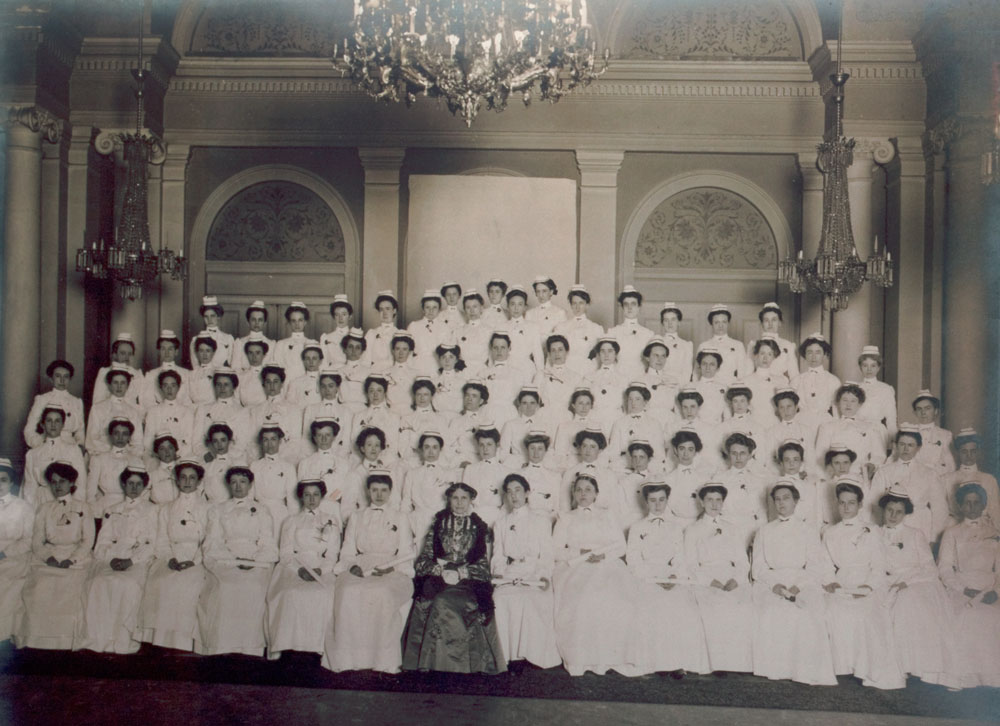
Clara Barton, commencement speaker for Philadelphia’s Blockley Hospital nursing class, 1902. Courtesy of the National Museum of Civil War Medicine
Though Clara Barton’s time as a public speaker and author is not often discussed, it represents an important part of her legacy. It is inspiring that she overcame her fears to spread awareness about causes like the Red Cross. Additionally, her efforts at spreading awareness for important issues served to gather support among the American people for new ventures like universal first aid training, the Red Cross, and other laudable causes.
Tags: Author, Civil War, Clara Barton, First aid, Lecture Circuit, Missing Soldiers Office, Red Cross Posted in: Clara Barton: American Legend